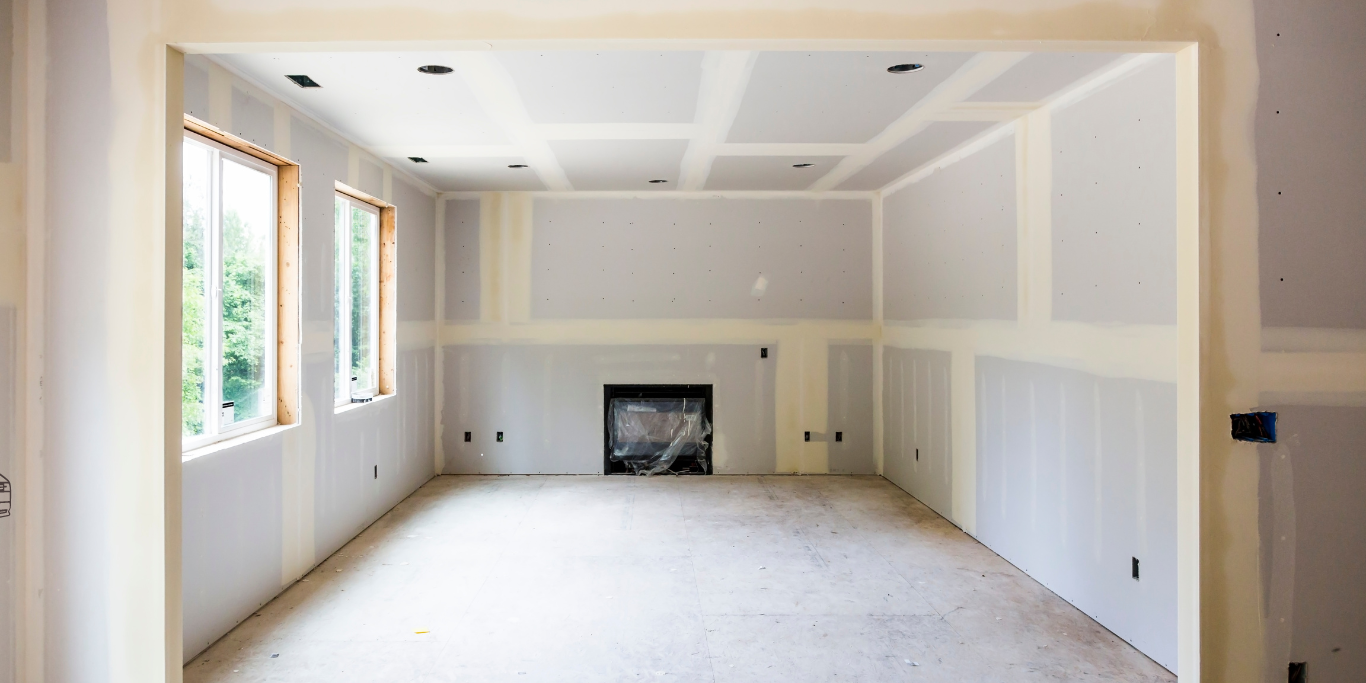Drywall installation is a critical component of interior construction, impacting both the aesthetics and structural integrity of buildings. In Allen, TX, ensuring that high-quality materials are used is paramount for the longevity and durability of the drywall. This blog explores the concerns surrounding the quality of materials used in drywall installation and their long-term performance, providing insights into how homeowners and contractors can make informed decisions.
The quality of materials used in drywall installation significantly influences its longevity and durability. Choosing high-quality materials and understanding their properties can lead to better performance and fewer issues over time.
The Importance of High-Quality Drywall Materials
Understanding Material Quality
The quality of drywall materials can vary significantly. High-quality drywall is typically denser, more uniform, and has better moisture resistance. It also tends to have fewer defects, such as bubbles or voids, which can compromise its structural integrity.
Benefits of High-Quality Drywall
Using high-quality drywall materials ensures a smoother finish, easier installation, and better soundproofing. These materials are also more resistant to cracking and warping, reducing the need for frequent repairs.
Risks of Using Low-Quality Materials
Low-quality drywall materials can lead to numerous problems, including premature wear, increased susceptibility to water damage, and higher likelihood of mold growth. This not only affects the longevity of the drywall but also the overall health and safety of the building’s occupants.
Factors Affecting the Quality of Drywall Materials
Manufacturing Processes
The manufacturing process of drywall significantly affects its quality. Reputable manufacturers follow strict quality control protocols to ensure consistency and durability in their products. Inferior manufacturing processes can result in drywall that is prone to defects and less resilient.
Material Composition
The composition of drywall materials, including the type of gypsum used and the presence of additives, plays a crucial role in determining their quality. High-quality drywall often includes additives that enhance its fire resistance and moisture protection.
Environmental Considerations
The environmental impact of drywall production is another critical factor. Sustainable manufacturing practices and the use of recycled materials can improve the environmental footprint of drywall without compromising quality.
Ensuring Longevity in Drywall Installation
Proper Installation Techniques
Even the highest quality drywall can fail if not installed correctly. Proper installation techniques, including secure fastening and appropriate joint treatment, are essential for maximizing the longevity of drywall.
Moisture Management
Moisture is one of the biggest threats to drywall. Implementing effective moisture management strategies, such as using moisture-resistant drywall in high-humidity areas and ensuring proper ventilation, can significantly extend the life of the drywall.
Regular Maintenance and Inspection
Routine maintenance and regular inspections can help identify and address issues before they become major problems. This includes checking for signs of water damage, cracks, and mold growth.
Advances in Drywall Technology
Innovative Drywall Products
Recent advancements in drywall technology have led to the development of innovative products that offer enhanced performance and greater versatility. For example, there are now drywall panels specifically designed for improved sound insulation and fire resistance, catering to both residential and commercial needs. These advanced panels can significantly reduce noise transfer between rooms, making them ideal for homes, offices, and multi-unit buildings. Fire-resistant drywall, on the other hand, provides an added layer of safety by slowing the spread of flames, which can be crucial in both residential and commercial properties. Additionally, there are impact-resistant drywall panels that are particularly beneficial in high-traffic areas where walls are more susceptible to dents and damage.
Eco-Friendly Options
Eco-friendly drywall options are becoming increasingly popular as environmental awareness grows. These products are made from recycled materials and are designed to be more sustainable without sacrificing quality. For instance, some eco-friendly drywall incorporates recycled gypsum and paper, reducing the reliance on virgin materials. This not only helps in conserving natural resources but also minimizes waste. Moreover, eco-friendly drywall often has lower emissions of volatile organic compounds (VOCs), contributing to better indoor air quality. This is especially important for creating healthier living and working environments. By choosing sustainable drywall options, builders and homeowners can significantly reduce the environmental impact of their construction projects.
Smart Drywall Solutions
Smart drywall solutions are emerging as innovative options for modern construction projects, enhancing both functionality and efficiency. These solutions include drywall with built-in insulation, which improves thermal performance and energy efficiency, and drywall with integrated electrical channels, which simplifies the installation of electrical wiring and reduces the need for additional framing. Some smart drywall products also come with embedded sensors that can monitor environmental conditions, such as temperature and humidity, helping to maintain optimal indoor climates and alerting homeowners to potential issues before they become major problems. These cutting-edge products demonstrate how technology is transforming traditional building materials to meet the evolving needs of modern construction.
Common Issues with Drywall and How to Address Them
Cracking and Joint Issues
Cracks in drywall can occur due to settling, temperature changes, or improper installation. These cracks can range from minor hairline fractures to significant gaps that compromise the wall’s integrity. Addressing these issues promptly with proper joint treatment and reinforcement can prevent further damage. Using high-quality joint compound and tape, as well as ensuring that the drywall is properly fastened and supported, can minimize the risk of cracking. For larger cracks, it may be necessary to apply multiple layers of compound and use reinforcing mesh to provide additional strength. Regular inspection and maintenance can help identify and repair cracks early, preserving the appearance and durability of your walls.
Mold and Mildew
Mold and mildew growth is a common issue in areas with high humidity, such as bathrooms, basements, and kitchens. These fungi thrive in moist environments and can cause significant health problems as well as damage to the drywall. Using mold-resistant drywall, which is treated with anti-microbial agents, and ensuring proper ventilation can mitigate this risk. It’s also important to address any leaks or sources of moisture promptly. Regular cleaning and maintenance, such as using dehumidifiers and exhaust fans, can help control humidity levels and prevent mold growth. If mold is detected, it should be removed immediately using appropriate cleaning solutions and protective gear to avoid health hazards.
Water Damage
Water damage can compromise the integrity of drywall, leading to swelling, warping, and deterioration. This damage is often caused by leaks, flooding, or high humidity. Identifying the source of water intrusion and repairing it quickly, along with replacing affected drywall sections, is crucial for maintaining the quality of the installation. Using water-resistant drywall in areas prone to moisture, such as basements and bathrooms, can provide additional protection. It’s also important to ensure that proper waterproofing measures are in place, such as sealing joints and using vapor barriers. Regular inspections and maintenance of plumbing and roofing can help prevent water damage and extend the lifespan of your drywall.
Case Studies and Real-World Examples
Residential Projects
In residential projects, using high-quality drywall materials has proven to enhance the longevity and appearance of homes. Case studies show that homeowners who invest in better materials experience fewer issues and lower maintenance costs. For instance, a family in Allen, TX, upgraded to moisture-resistant drywall in their bathrooms and kitchen, resulting in fewer mold problems and a fresher, cleaner look over time. Another homeowner opted for soundproof drywall in their home office and bedrooms, significantly reducing noise pollution and improving the overall comfort of their living space. These examples illustrate how choosing the right drywall materials can make a substantial difference in residential settings.
Commercial Installations
Commercial buildings often face more rigorous demands than residential structures, requiring durable materials that can withstand heavy use and environmental stressors. Case studies of commercial installations highlight the importance of using durable materials and proper installation techniques. For example, an office building in downtown Allen utilized fire-resistant and impact-resistant drywall throughout its corridors and common areas. This not only enhanced the safety of the building but also reduced maintenance costs due to fewer repairs. Another case study involves a restaurant that implemented soundproof drywall to create a more pleasant dining experience by minimizing noise from the kitchen and adjacent spaces. These examples underscore the value of investing in high-quality drywall for commercial applications.
Renovation Success Stories
Renovation projects can benefit greatly from upgrading to high-quality drywall materials. Success stories from renovation projects in Allen, TX, demonstrate how improved materials can transform older buildings, extending their lifespan and enhancing their value. One such example is a historic home renovation where moisture-resistant drywall was used to replace old, damaged walls. This upgrade not only preserved the aesthetic integrity of the home but also protected it from future water damage. Another renovation involved a commercial space being converted into a co-working office. The use of advanced soundproof drywall created a conducive environment for productivity by reducing external noise. These renovation projects highlight the transformative impact of high-quality drywall materials in both preserving and enhancing existing structures.
FAQs:
Q1. What are the signs that indicate poor quality drywall materials?
Signs of poor quality drywall include bubbles or voids, susceptibility to cracking and crumbling, and vulnerability to moisture, leading to swelling and mold growth. Poor soundproofing and thermal insulation are also indicators. Additionally, check for uneven surfaces and improper fit, which can suggest inferior manufacturing standards and negatively impact the installation.
Q2. How can I ensure that the drywall materials used in my home are of high quality?
Ensure quality by sourcing drywall from reputable manufacturers, working with experienced contractors, and conducting research on different drywall types. Check for certifications, inspect materials for defects, and ensure proper handling and storage. Furthermore, review online customer feedback and industry ratings to confirm the reliability of both the product and the professionals you hire.
Q3. What steps can I take to maintain and prolong the life of my drywall?
Control indoor moisture with dehumidifiers and ventilation, conduct regular inspections, promptly repair minor damages, avoid hanging heavy items improperly, and consider professional maintenance for thorough assessments and tailored advice. Regularly repaint or retexture walls to protect the surface and use high-quality materials in high-traffic areas to enhance durability.
Conclusion:
Investing in high-quality drywall materials and proper installation techniques is essential for ensuring the longevity and durability of drywall installations. By understanding the factors that influence material quality and implementing best practices for installation and maintenance, homeowners and contractors in Allen, TX, can achieve superior results. Moreover, regular inspections and timely repairs can prevent minor issues from becoming major problems, further extending the life of your drywall. For more information on drywall installation and other home improvement services, visit MJ Workforce Solutions. Our team of experts is dedicated to providing top-notch service and ensuring your home remains in excellent condition.







